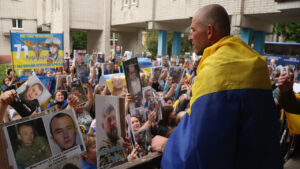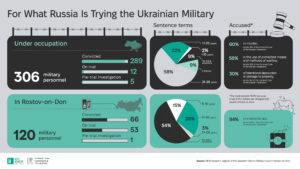Russian Detention Centers Use National Anthem as a Method of Psychological Pressure on Prisoners — Infographic
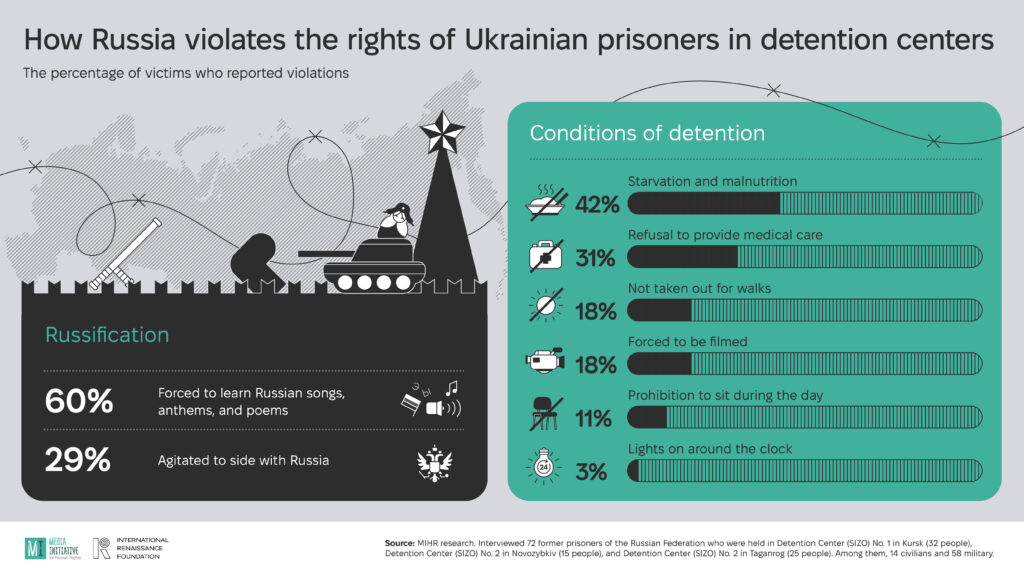
60% of former detainees in Russian detention centers (SIZOs) interviewed by the Media Initiative for Human Rights (MIHR) reported that they were forced to learn the Russian national anthem, as well as songs and poems glorifying Russia.
These findings come from MIHR analysts who examined 72 testimonies from former Russian captives, including 58 military personnel and 14 civilians. Among them, 32 were held in Kursk SIZO No. 1, 25 in Taganrog SIZO No. 2, and 15 in Novozybkov SIZO No. 2.
Russian songs and poems serve as the first stage of Russification. Additionally, detainees are subjected to informational disorientation and are deprived of contact with their families to reinforce the belief that they have been abandoned.
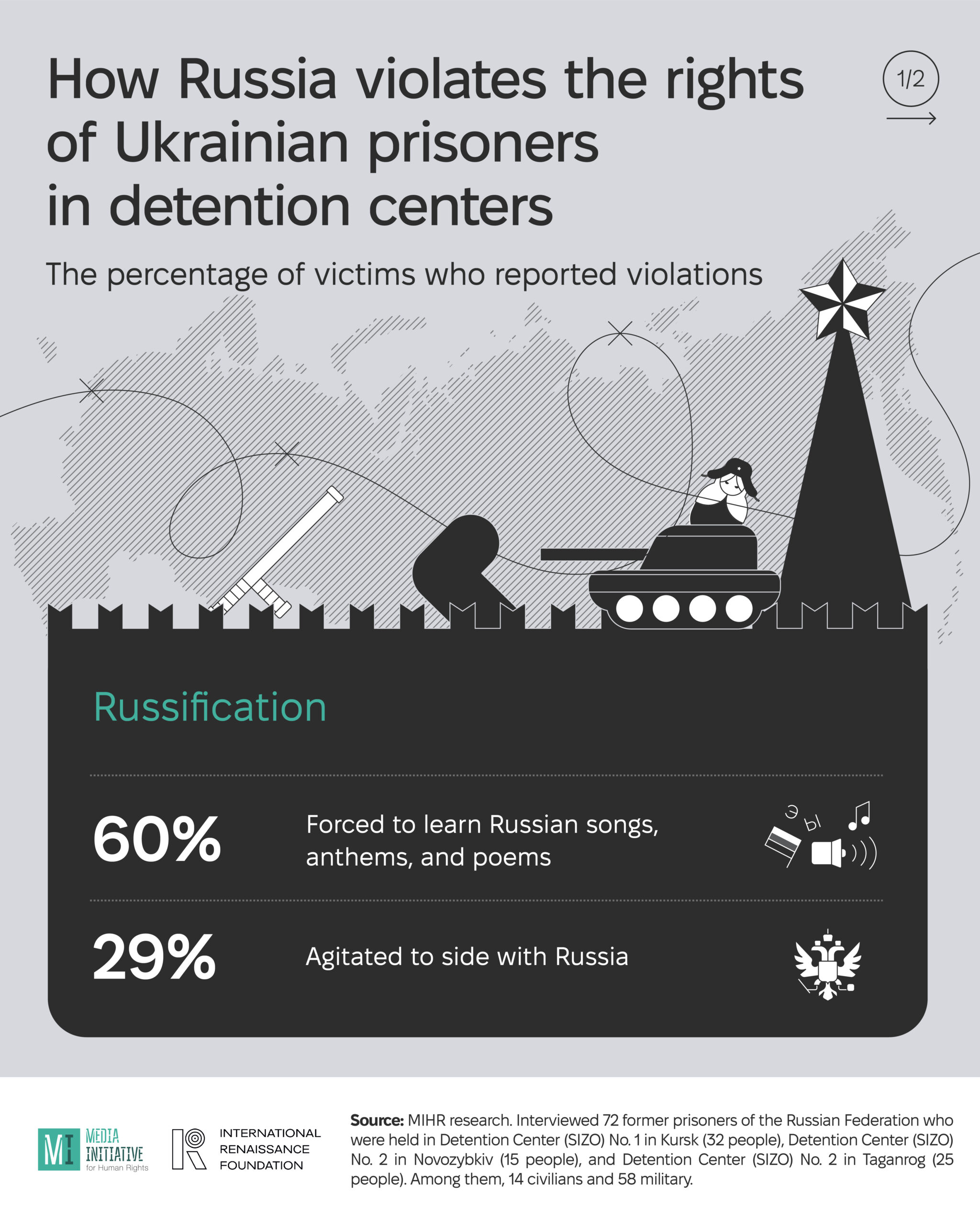
In captivity, Ukrainians are exclusively referred to as “fascists,” “Banderites,” and derogatory slurs. Combined with constant physical violence, this has a severe impact on their psychological state.
At the final stage of Russification, Russian authorities attempt to persuade Ukrainian prisoners to switch sides, coercing them into accepting Russian citizenship to prevent their return home.
Former detainees also describe appalling conditions in Russian detention centers, where they are denied outdoor exercise, prohibited from sitting on their beds during the day, and subjected to starvation.
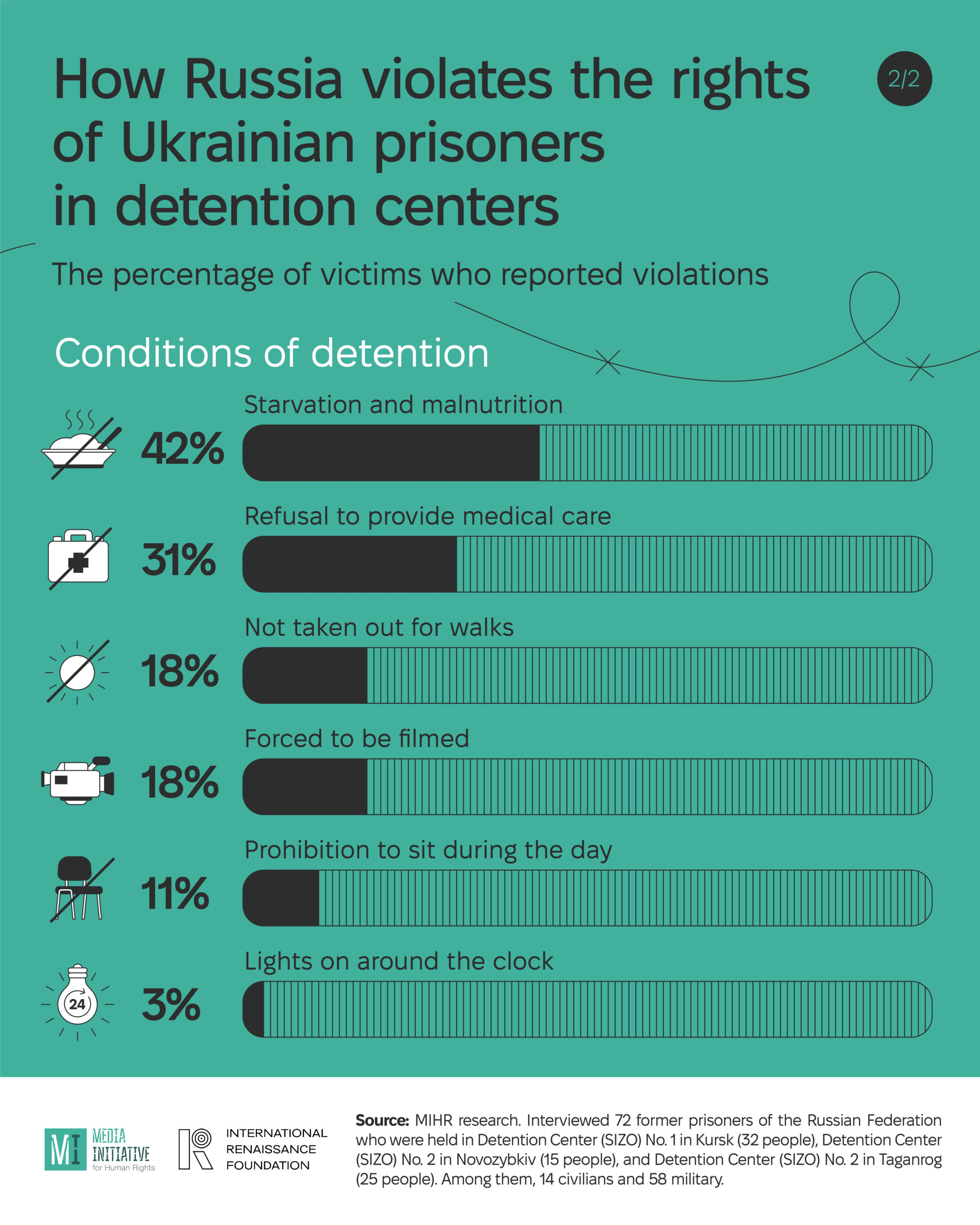
Previously, MIHR reported that 80% of former prisoners surveyed had experienced violence in Russian SIZOs. Additionally, 11% of released detainees stated that they suffered broken limbs while in captivity, and the same percentage lost consciousness due to torture.
This publication was compiled with the support of the International RenaissanceFoundation. It’s content is the exclusive responsibility of the authors and does not necessarily reflect the views of the International Renaissance Foundation.



